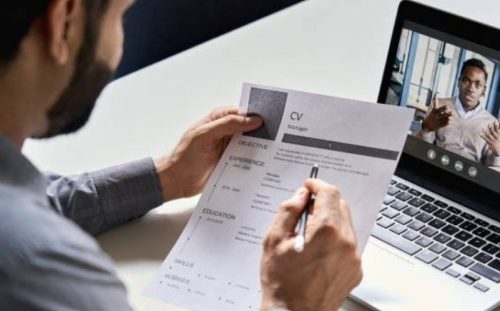On Wednesday, April 8, New Jersey Governor Murphy announced and signed Executive Order No. 122 which is intended to close all “non-essential” construction in New Jersey, effective this Friday, April 10 at 8:00 p.m. The Order requires the physical operations of all “non-essential” construction projects to cease, while allowing “essential construction” to continue with some restrictions. What can continue as “essential construction” is detailed in the Order, but may need further clarity.”
What is an “Essential” Construction Project?
According to the Order, the following constitute “essential” construction projects:
- Projects necessary for the delivery of healthcare services, including hospitals, healthcare facilities, and pharmaceutical manufacturing facilities;
- Transportation projects, including roads, bridges, mass transit facilities, physical infrastructure, airports, and seaports;
- Utility projects, including those necessary for energy and electricity production and transmission, and any decommissioning of facilities used for energy generation;
- Residential projects exclusively designated as affordable housing;
- Educational construction projects involving pre-K-12 schools, including projects in Schools Development Authority districts, and higher education facilities;
- Projects already underway involving individual single-family homes or an individual apartment unit where an individual already resides, with a construction crew of five or fewer individuals. This includes additions to single-family homes such as solar panels;
- Projects already underway involving a residential unit for which a tenant or buyer has already entered into a legally binding agreement to occupy the unit by a certain date and construction is necessary to ensure the unit’s availability by that date;
- Projects involving facilities at which there is the manufacture, distribution, storage, or servicing of goods or products that are sold by online retail businesses or essential retail businesses, as defined by Executive Order No. 107 and subsequent Administrative Orders adopted pursuant to that Order;
- Projects involving data centers or facilities critical to a business’s ability to function;
- Projects necessary for the delivery of essential social services, including homeless shelters;
- Projects necessary to support law enforcement agencies or first responders in their response to the COVID-19 emergency;
- Projects ordered or contracted for by Federal, State, County, or Municipal government and projects to be completed by deadlines established by the Federal government;
- Any work on non-essential construction sites that is required to physically secure the project, ensure the structural integrity of any buildings on the site, abate any hazards that would exist on the site if the project were to remain in its current condition, remediate the site, or otherwise ensure that the site and any buildings thereon are appropriately protected and safe during the suspension of the project; and
- Any emergency repairs necessary to ensure the health and safety of residents.
What are the Restrictions on “Essential” Construction Projects?
Businesses working on essential construction projects must adopt the following requirements:
- Prohibit non-essential visitors from entering the worksite;
- Limit worksite meetings, inductions, and workgroups to groups of fewer than ten individuals;
- Require individuals to maintain six feet or more distance between them wherever possible;
- Stagger work start and stop times where practicable to limit the number of individuals entering and leaving the worksite concurrently;
- Stagger lunch breaks and work times where practicable to enable operations to safely continue while utilizing the least number of individuals possible at the site;
- Restrict the number of individuals who can access common areas, such as restrooms and breakrooms concurrently;
- Require workers and visitors to wear cloth face coverings and gloves while on the premises, except where wearing the face coverings would inhibit the individual’s health or the individual is under two years of age. Businesses must provide the face coverings and gloves at their expense for their employees. If a visitor refuses to wear a cloth face covering for non-medical reasons and if the face covering cannot be provided to the individual by the business, the business must decline entry to the individual. This policy does not prevent individuals from wearing their own masks or wearing more protective face masks if the business is otherwise required to provide the worker with more protective equipment due to the nature of the work;
- Require infection control practices, including hand washing, coughing and sneezing etiquette, and proper tissue usage and disposal;
- Limit sharing of tools, equipment, and machinery;
- Provide sanitization materials to workers and individuals, such as hand sanitizer and sanitizing wipes;
- Require frequent sanitization of high-touch areas, like restrooms, breakrooms, equipment, and machinery;
- Immediately separate and send home workers who appear to have symptoms of COVID-19 upon arrival at work or who become sick during the day;
- Promptly notify workers of any known exposure to COVID-19 at the worksite, consistent with confidentiality requirements otherwise applicable;
- Clean and disinfect the worksite in accordance with CDC guidelines when a worker at the site has been diagnosed with COVID-19; and
- Follow guidelines and directives issued by the NJ Department of Health, the CDC, and the Occupational Health and Safety Administration.
Does Your Project Fit Into the “Essential” Construction Exceptions?
The Order appears to be broader than expected and permits many types of construction projects to continue if they have been started and are ongoing.
Executive Order 122, permits a residential construction project that is already “underway,” with contracts, closing dates or with lease agreements and occupancy dates. The Order allows for emergency repairs. The order allows for environmental remediation projects to continue. The Order also allows for commercial construction projects for manufacturing, distribution, storage, or other servicing of goods or products, including retail businesses. It also allows for commercial construction projects that involve data and similar facilities, as well as pharmaceutical-type construction projects.
So What is “Non-Essential” Construction?
It appears from the Order that new construction has been deemed “non-essential.” Beyond new construction that has not yet commenced or is not already “underway,” the Order does not overtly cease the operation of many ongoing construction projects.
Right now, if you have questions or require counsel about any aspect of the Governor’s Order, please contact:
Rose A. Suriano, Esq., Member and Co-Chair, Litigation Practice, at rsuriano@bracheichler.com or 973-403-3129
Frances B. Stella, Esq., Member and Chair, Environmental and Land Use Practice, at fstella@bracheichler.com or 973-403-3149
Susan R. Rubright, Esq., Member, Environmental and Land Use Practice, at srubright@bracheichler.com or 973-403-3157
Lindsay P. Cambron, Esq., Associate, Environmental and Land Use Practice, at lcambron@bracheichler.com or 973-364-5232
Robyn K. Lym, Esq., Associate, Litigation Practice, at rlym@bracheichler.com or 973-403-3124 |












